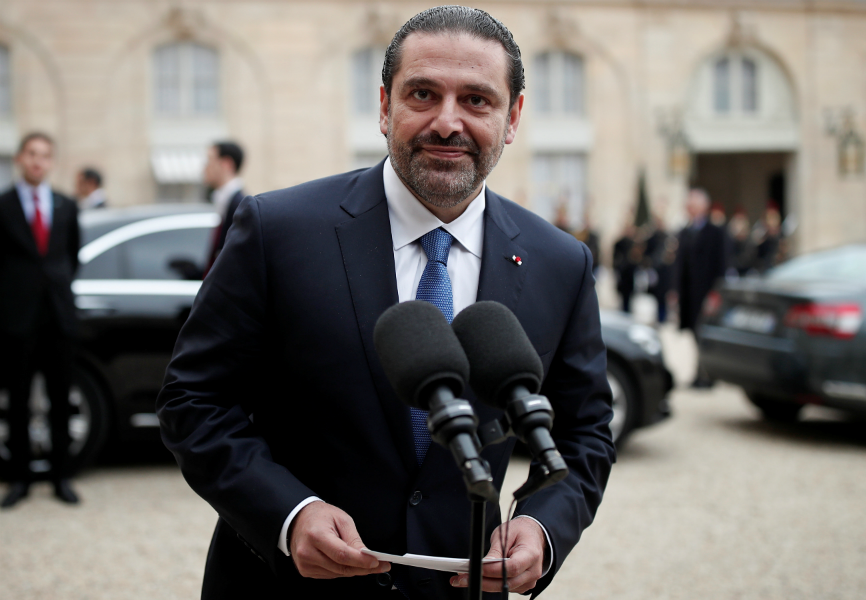Lebanon has been in the headlines recently with the surprise resignation of its prime minister from nearby Saudi Arabia and the subsequent political crisis that has ensued. Here's what you need to know:
What happened
On 4 November, Lebanon's prime minister, Saad Hariri, resigned suddenly via televised address from Riyadh. He cited Iran's influence in Lebanon and an assassination plot against him as his reasons for stepping down. Although he is currently still in Saudi Arabia, Hariri has denied allegations he is being held against his will and has promised to return to Lebanon “soon.” Nevertheless, Hariri's sudden resignation – issued under pressure from the Saudis – threatens to destabilize Lebanon and puts the country squarely back in the middle of Saudi Arabia and Iran's struggle for regional dominance.
The players
LEBANON: Formally, political power is divided between the prime minister, who must be Sunni; the president, who must be Maronite Christian; and the speaker of Parliament, who must be Shiite. In reality, the country's most powerful political force is Hizbullah, who holds seats in the Lebanese parliament and has its own armed fighting force.
IRAN: The Middle East's leading Shia Islam power. For decades, it has battled Saudi Arabia for regional dominance through proxy wars including those being fought in Syria and Yemen. It is a major supporter of Hizbullah.
SAUDI ARABIA: The Middle East's leading Sunni Islam power. It has tried to weaken Hizbullah for over a decade, and likely pressured Hariri to resign because it believes Hariri will not confront Hizbullah head-on. Domestically, Saudi Crown Prince Mohammed bin Salman (MBS) is consolidating power by detaining more than 200 royals and businessmen in what the government calls an “anti-corruption crackdown.”
Political implications
Nationally, Hariri's resignation jeopardizes the power-sharing agreement that led to his appointment as prime minister and ended a three-year political vacuum in which Lebanon had no president.
Regionally, it escalates tensions between Saudi Arabia and Iran – and the missile that pro-Iranian Houthi rebels in Yemen launched on Riyadh certainly didn't help. Nevertheless, armed conflict is unlikely, as neither side wants open warfare. Iran remains focused on rebuilding its economy, and Saudi Arabia wants to avoid anything that could undermine MBS's consolidation of power. However, the Saudis could see Iran's reluctance to escalate as an opportunity to force the Iranians to agree to some Saudi demands in Yemen and Lebanon, including a reduced role for Hizbullah in the Lebanese government.
What to expect
SAUDI ARABIA: Increased nationalist rhetoric from MBS, who will use it to solidify his position and shift media attention away from Saudi Arabia's domestic power struggle. The Saudis will also urge allies in Lebanon to adopt hardline policies against Hizbullah, such as sanctions to exclude the Shia group from government.
IRAN: Avoidance of harsh reactions to Saudi moves in favor of focusing on the domestic economy, especially on job creation.
The takeaway
Hariri's resignation is part of a broader struggle between Saudi Arabia and Iran. Although armed conflict between the two is unlikely, Riyadh's pressure on Hariri reflects its increased commitment to countering Iran politically, if not militarily. It could also use Iran's reluctance to escalate the conflict to gain concessions on Yemen and Hizbullah.
SUBSCRIBE TO GZERO DAILY
Sign up now for GZERO Daily, the newsletter for anyone interested in global politics, published by GZERO Media.
As head of Eurasia Group's Middle East and North Africa research team, Ayham Kamel leads coverage of regional geopolitics, Saudi Arabia, the Gulf Cooperation Council, Iraq, and the Levant area.

 Saad Hariri, who announced his resignation as Lebanon's Prime Minister while on a visit to Saudi Arabia, talks to journalists after a meeting with the French President at the Elysee Palace in Paris, France, November 18, 2017. REUTERS/Benoit Tessier
Saad Hariri, who announced his resignation as Lebanon's Prime Minister while on a visit to Saudi Arabia, talks to journalists after a meeting with the French President at the Elysee Palace in Paris, France, November 18, 2017. REUTERS/Benoit Tessier
